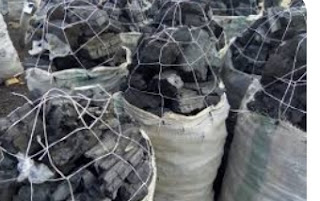How to Start Charcoal Business in Nigeria: Starting a charcoal business in Nigeria can be a lucrative venture due to the country's abundant natural resources and the high demand for charcoal as a source of fuel.
Charcoal is widely used for cooking and heating purposes across the nation, making it a valuable commodity.
In this guide, we will provide a step-by-step overview of how to start a successful charcoal business in Nigeria.
Read Also: 10 Best ICT Skills to Learn in Nigeria
How to Start Charcoal Business in Nigeria
Step 1: Conduct Market Research
Before diving into the charcoal business, it is crucial to conduct thorough market research. Identify potential customers, competitors, and the demand for charcoal in your target area. Understand the pricing dynamics, consumer preferences, and any regulatory requirements specific to the charcoal industry.
Step 2: Develop a Business Plan
A well-structured business plan will serve as a roadmap for your charcoal business. Outline your objectives, strategies, target market, marketing plans, financial projections, and operational processes. A detailed business plan will help attract investors and secure loans, if required.
Step 3: Secure Capital
Starting a charcoal business requires adequate capital for various aspects such as purchasing raw materials, equipment, transportation, marketing, and overhead costs. Explore potential funding sources like personal savings, bank loans, grants, or partnerships with investors. Ensure your capital is sufficient to cover initial expenses and sustain the business until profitability is achieved.
Step 4: Obtain Necessary Permits and Licenses
Contact the appropriate local authorities and obtain the necessary permits and licenses to operate your charcoal business legally. This may include business registration, tax identification number, environmental permits, and any other requirements mandated by the government or local regulatory bodies.
Step 5: Source Raw Materials
Charcoal is primarily produced from wood, so securing a reliable and sustainable source of raw materials is crucial. Establish relationships with local suppliers, farmers, or timber companies to ensure a steady supply of wood. Emphasize sustainable sourcing practices to promote environmental conservation and meet growing consumer demand for eco-friendly products.
Step 6: Production Process and Equipment
Set up a production facility where the wood will be converted into charcoal. The production process typically involves pyrolysis, a controlled burning process that removes moisture and volatile substances from the wood, resulting in charcoal. Acquire the necessary equipment, such as kilns or retort systems, to efficiently carry out the production process.
Step 7: Quality Control
Maintaining consistent quality is essential for building a reputable charcoal business. Implement rigorous quality control measures to ensure your charcoal meets industry standards. Conduct regular tests for carbon content, moisture levels, and other quality parameters. Delivering high-quality charcoal will earn customer trust and loyalty.
Step 8: Packaging and Branding
Invest in attractive and durable packaging for your charcoal products. Design packaging that reflects the quality and eco-friendliness of your brand. Branding plays a vital role in distinguishing your business from competitors, so develop a unique and memorable brand identity that resonates with your target market.
Step 9: Distribution and Marketing
Create a distribution network to reach your target customers effectively. Explore various channels, including wholesalers, retailers, supermarkets, and online platforms. Develop marketing strategies such as advertising, promotions, and online presence to raise awareness about your brand. Participate in trade shows or exhibitions to showcase your products and connect with potential buyers.
Step 10: Customer Service and After-Sales Support
Prioritize customer satisfaction by providing excellent customer service and after-sales support. Promptly address any customer queries or concerns. Build long-term relationships with customers by offering value-added services, such as timely delivery, product training, or technical assistance.
Conclusion:
Starting a charcoal business in Nigeria requires careful planning, market research, and a commitment to quality and sustainability. By following the steps outlined in this guide, you can establish a successful and profitable charcoal business.
Stay informed about industry trends, adapt to evolving customer needs, and continuously improve your processes to thrive in the competitive Nigerian market. With dedication and perseverance, your charcoal business can become a sustainable venture contributing to Nigeria's energy needs while generating significant profits.

